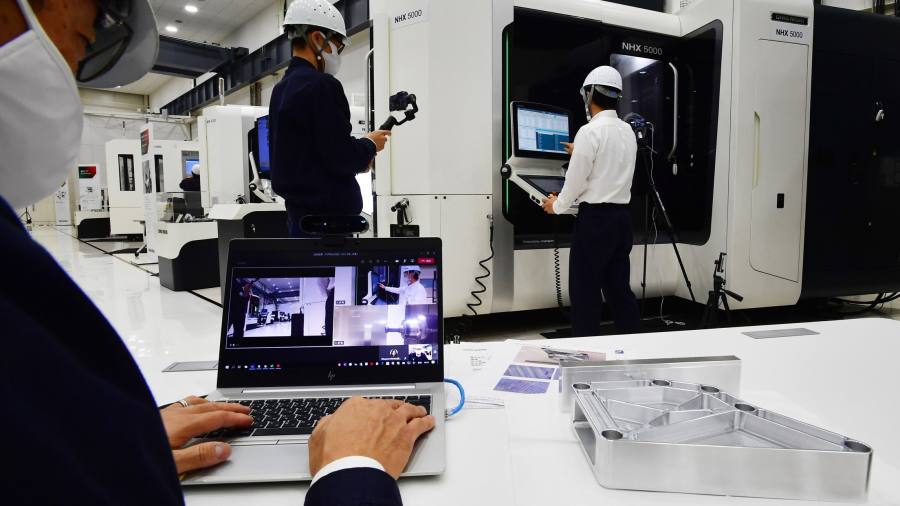DMG Mori, one of the world’s largest manufacturers of advanced machine tools, has started tracking the use of its products to ensure they are not applied to military purposes at a time of rising geopolitical tensions.
The German-Japanese company asked clients worldwide from April to install a remote management system that would switch off equipment if it were removed or dismantled.
In a letter sent in late March and seen by the Financial Times, DMG said the installation of the system was aimed at preventing its equipment from being “illegally transferred to individuals or countries that may threaten international security”.
The letter added that the company would refuse to reactivate the equipment if its use violated “applicable export rules”. DMG makes a machine tool used to manufacture everything from passenger cars to fighter jets.
In response to a query from the FT, DMG said it had made the decision to implement the new measures “due to the global political situation — and certainly due to the outbreak of the Russian war in Ukraine”, adding that it was making sure no “misappropriation of our machines takes place”.
The move by DMG, which was created through the merger of Japanese Mori Seiki and its German rival Gildemeister, comes as tensions rise between the EU and China over the war in Ukraine. China’s foreign minister on Tuesday condemned EU proposals to impose sanctions on Chinese companies for supporting Russia’s war machine, vowing to react “strictly and firmly” to defend its businesses.
About a quarter of DMG’s sales are made in Asia. The company does not provide separate figures for its China business.
China was Germany’s top trading partner for the seventh year in a row in 2022, serving as a vital market for German car producers in particular. But western concerns about dependence on Beijing, driven by the US, have been deepened by the fallout from the Covid-19 pandemic and Russia’s war in Ukraine.
Security concerns have prompted Berlin in recent months to reconsider the use of Huawei equipment in the German telecoms network and review a decision to allow the Chinese shipping company Cosco to buy a stake in a Hamburg port terminal.
“While the requirement may apply to many countries, it will affect China the most since Chinese civil-military fusion factories had a history of buying DMG machineries,” said a former DMG China executive. “We had for years feigned ignorance of where our products were deployed in China.”
Liu Hanyu, an analyst at Daxue Consulting in Shanghai, said more western machine-tool makers would follow in DMG’s footsteps. This, according to a report last month from Guangzhou-based GF Securities, will create “a huge risk” for exporters of high-end machine tools to China.
Foreign brands accounted for 60 per cent of China’s five-axis machine-tool sales last year, while DMG took 17 per cent of the market in the same year, according to QY Research, a California-based consultancy. Chinese machine-tool users said the latest mandate from DMG might encourage them to increase purchases from local suppliers.
James Wei, an engineer at a Guangdong-based manufacturer that has worked with western machine-tool makers, said at least two local brands could serve as a substitute for DMG. “There is an urgency to reduce our reliance on foreign equipment,” said Wei.
Yet the switch to local brands could come at the expense of quality. “The design of the Chinese machines is nice and great,” said Raffaello Martini, production director at Ibarmia China, a Spanish machine-tool maker. “But you also need to have a strong body to meet the requirements of the market.”
That has put Chinese machine-tool users in a tricky position. “We need to learn to work with the second-best machine tool in the foreseeable future,” said an engineer at a Chinese aircraft maker.
Additional reporting by Laura Pitel in Berlin
Read the full article here
